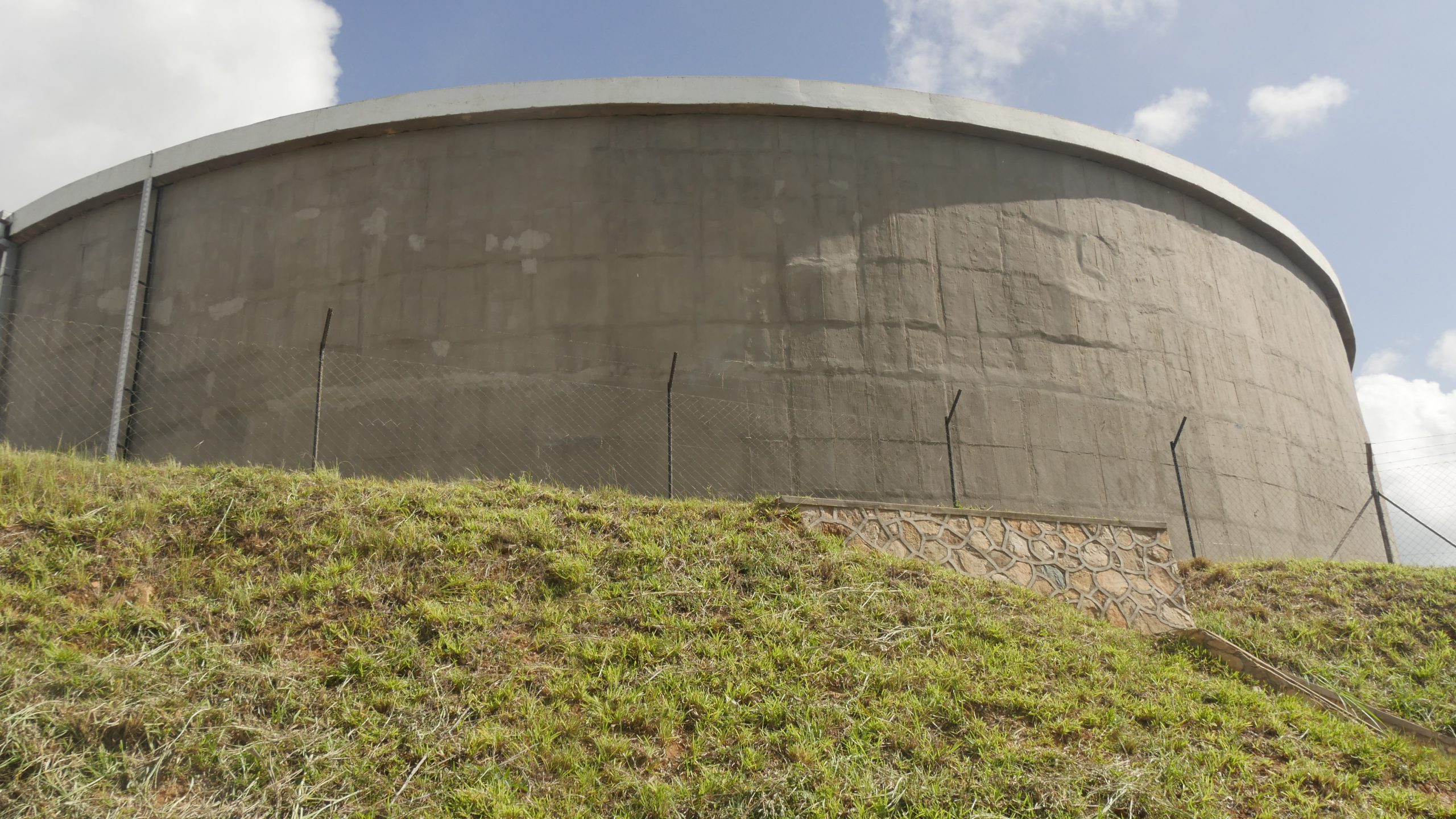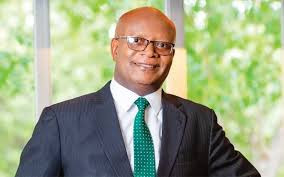
A seven-member delegation of African Development Bank Executive Directors commended the positive impact of ZimFundwater & sanitation and power projects to the people of Zimbabwe, some of which they visited during their recent oneweek-long consultative mission in the country.
The delegation, led by Mr. Mbuyami Matungulu, who represents a constituency covering Burundi, Cameroon, Central African Republic, Chad, Congo and The Democratic Republic of Congo toured a 10million liters Chikanga Water Reservoir in Mutare, the ZimFund rehabilitated Prince Edward Electricity Substation in Harare and Ruwa Water Treatment Plant as well as rehabilitated sewage pump stations where ZimFund interventions have had positive impacts on the beneficiaries.
“It is pleasing to hear that through ZimFund projects, community members from these municipalities now have water and the power facilities boosted for their benefit. This should be the case even beyond project completion, hence, sustainability is of paramount importance,” emphasized Mr. Matungulu.
Mr. Matungulu stated that ZimFund projects are important to the Bank as they are among the five key priority areas of the Bank, popularly known as the “High Fives” and these include; Light Up and Power Africa, Feed Africa, Integrate Africa, Industrialize Africa and Improve the quality of life for the people of Africa.
In Mutare, ZimFund Urgent Water Supply and Sanitation Rehabilitation Project (UWSSRP I) under Phase I involved installation of a 10 million liters Chikanga/Hobhouse reservoir that is currently able to supply daily clean water to more than 100 000 households of Hobhouse and surrounding suburbs such as Dangamvura, Chikanga. Other works included upgrading of the chlorination system at Odzani Water Treatment plant, rehabilitation of Gimboki Sewage Treatment Plant, completion of 12 km Mutare outfall sewer line among others.
Briefing the delegation, Mutare City Engineer Mr. Maxwell Kerith stated that, as part of the City’s measures to ensure sustainability of the projects, they established an office in Hobhouse and Chikanga suburbs for efficient revenue collection, more so, as the residents in those areas now receive daily water supply. However, the Engineer bemoaned the sub-economic tariff as the city currently charges ZWL$ 1.80 for 1000 liters of purified water, which seriously threatens sustainability of the investment put in by ZimFund.
“We understand that we received a grant but the system has to sustain itself. The focus now is on revenue collection and reducing non-revenue water (losses due to leakages and theft). However, our water and sanitation tariff is too low. To be sustainable, we need to charge an equivalent of USD 0.37c (about ZWL$7) per 1000litres, this will also enable us to also invest in the future,” said Engineer Kerith.
The Mutare Town Clerk, Joshua Maligwa, appealed to government authorities to give them a green light to review the tariff upwards. Responding to the appeal, Chief Director in the Ministry of Local Government and Public Works Mr. Christopher Shumba assured the City that the government will do its best to ensure that Development Partners funded projects are sustainable. As such, the Ministry intended to discuss with local authorities, who, should further engage the residents to come up with sustainable water tariffs.
- Chamisa under fire over US$120K donation
- Mavhunga puts DeMbare into Chibuku quarterfinals
- Pension funds bet on Cabora Bassa oilfields
- Councils defy govt fire tender directive
Keep Reading
Mutare City Council also noted that there was a need to ensure sustainability of the power supply in the city, hence, appealed to the Bank and other Development Partners to fund their Mini-Hydro Power Plant at the Pungwe Pipeline to Mutare which has the capacity to generate at least 800kilowatts, with an estimated investment of USD 3.1 million.
To help increase reliability of power supply in targeted parts of the country, ZimFund Emergency Power Infrastructure Rehabilitation Project Phase II financed the replacement of transformers in five strategic locations namely: Bulawayo’s Marvel Substation (175 MVA), Gweru’s Chertsey Substation (90 MVA), Harare Prince Edward Substation (20 MVA), Mutare’s Orange Grove Substation (50 MVA) and Kwekwe’s Sherwood Substation (175 MVA). These locations had old and inefficient transformers that had failed in service, having been in operation way beyond their recommended 50-year lifespan. Most of the substations rehabilitated under ZimFund EPIRP II supply power to critical institutions such as hospitals, schools and universities, water and sewage treatment plants, mines and other public facilities that cater to a population of over 5 million people, spread across the country’s provinces.
Mr. Matungulu said the Bank was committed to assisting Zimbabwe realize its full potential. Zimbabwe is represented at the Bank by Dr. Judith Kateera who also represents; Mozambique, Namibia and Angola. Other Executive Directors on this mission included Ms. Kenyeh Barlay who represents a constituency covering; Ghana, Liberia, Sierra Leone and Sudan; Mr. Paal Bjornestad for; Denmark, Finland, India, Norway, and Sweden; Mr. Amod Kipronoh Cheptoo; for Eritrea, Ethiopia, Kenya, Rwanda, Seychelles, South Sudan, Tanzania, and Uganda); and Ms. Mmakgoshi Lekhethe, for; Eswatini, Lesotho and South Africa. Eugenio Paulo, Senior ED Advisor, and Dr. Josephine Ngure, Acting Director General (RDGS) also participated in the mission.
The delegation also met President Emmerson Mnangagwa including; officials from various ministries, Civil Society, Private Sector and Multilateral Financial Institutions, during which they were briefed on the current macro-economic, social and political environment in the country.
ZimFund is a US$145 million Water & Sanitation and Energy Infrastructure programme, which was established in 2010 after the 2008 Cholera outbreak. The ZimFund programme is generously supported by the governments and people of Australia, Denmark, Germany, Norway, Sweden, Switzerland and United Kingdom. ZimFund is managed by the AfDB as part of its operations to improve quality of life in Zimbabwe. The Bank also funds water and sanitation projects in other locations such as Bulawayo and Marondera and other sectors in Zimbabwe including; agriculture, transport, social, private, financial and energy sectors.
Disclaimer: Opinions expressed in this article do not necessarily reflect those of ZimFund donors, the African Development Bank, its Board of Directors or the countries they represent. For feedback and more information kindly contact: ZimFund Communications via: s.mlotshwa@afdb.org, and e.nzabanita@afdb.org.










